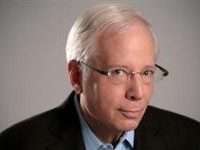 My comment on CNBC that it should give investors more “in Bogle we trust” and less “in Cramer we trust” precipitated a Cramer tirade. It made great TV, but prevented a rational discussion of important issues. Here are some questions and answers intended to reduce the heat and shed some light on those issues:
My comment on CNBC that it should give investors more “in Bogle we trust” and less “in Cramer we trust” precipitated a Cramer tirade. It made great TV, but prevented a rational discussion of important issues. Here are some questions and answers intended to reduce the heat and shed some light on those issues:
Q. Should employees continue to invest in their 401(k) plans?
A. If your employer is matching your contributions, you should consider contributing the minimum necessary to get the maximum match. However, this is not a no-brainer. Most plans are laden with porky-pig fees and a confusing array of expensive, underperforming mutual funds. As a result, employees are only getting a fraction of the returns they deserve. And you will be taxed at your marginal tax rate at the time of distribution. No one knows what that rate will be.
There are some excellent 401(k) plans, most notably the Thrift Savings Plan, which is offered to government employees. It has very low costs, all index funds, and a small number of target date funds. Intelligent choices are very easy for participants in this plan. It is a rare exception, which is precisely the problem.
Q. What are the alternatives to investing in a 401(k) plan?
A. Roth IRAs (if you qualify), traditional IRAs, and investing in an after-tax account.
Q. Why is it important for the financial media to focus more on the teachings of Bogle than on the stock picks of Cramer?
A. Bogle advocates asset allocation and investing in a globally diversified portfolio of low-cost index funds. His advice is supported by 80 years of historical data, and hundreds of academic articles. It is endorsed by Nobel prize winners in economics, Warren Buffet, and Peter Lynch, as well as in excellent, well-researched books written by David Swensen, Burton Malkiel, Allan Roth, Mark Hebner, William Bernstein, Larry Swedroe, Michael Edesess, and others. A moderate portfolio of 60 percent stocks and 40 percent bonds invested as advised by Bogle earned 36 percent for the ten years ending December 31, 2008. Those who follow Bogle’s advice will capture market returns, less low transaction costs.
Cramer distorted Bogle’s views by confining his comments to the performance of the S&P 500 index. That index alone does not represent an appropriate asset allocation for anyone. It is not globally diversified and it is far too risky. The S&P 500 index lost 26.5 percent for the ten years ending December 31, 2008.
There have been two comprehensive studies of Cramer’s stock picks in Barron’s, dated August 20, 2007, and February 9, 2009. Both concluded that his picks the markets.
Cramer’s market timing skills are also suspect. According to Barron’s, he was the “chief cheerleader” for the bull market and, in the Spring of 2007, “was giddily exhorting the Dow Jones Industrial average towards 15,000, with no troubles in sight.”
It doesn’t matter if you are investing inside a 401(k) or in an after-tax account. You need to understand how to invest intelligently to maximize your returns. Stock picking, market timing, and mutual fund manager picking are failed strategies.
The Smartest Investment Book You’ll Ever Read The Smartest 401(k) Book You’ll Ever Read. The Smartest Retirement Book You’ll Ever Read,


Leave a Reply